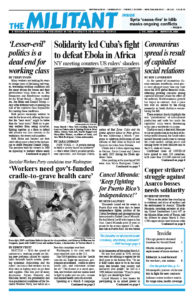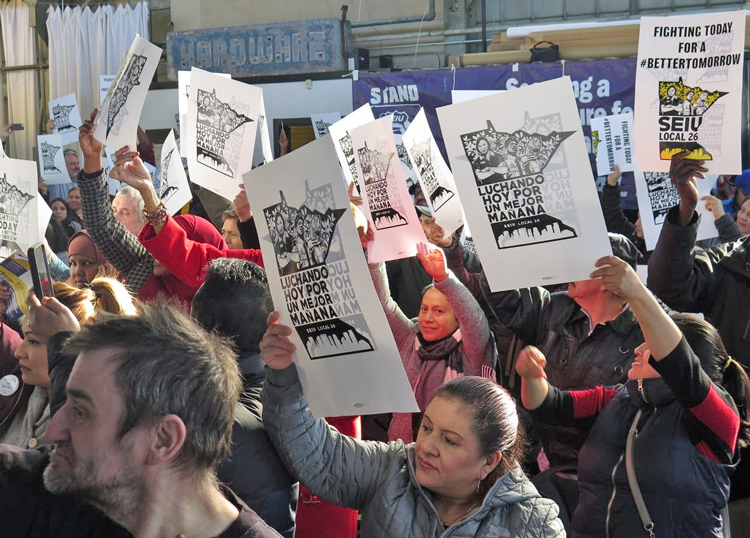MINNEAPOLIS — Janitors, members of Service Employees International Union Local 26, reached a tentative agreement after a strike here Feb. 27.
There are 4,000 commercial janitors in the SEIU local. Many are immigrants from Latin America, East Africa and other parts of the world. They are employed by more than a dozen different subcontractors to clean some of the largest office buildings in the area, such as US Bank, Wells Fargo and Ameriprise.
Nearly 100 janitors, joined by several hundred supporters, marched and rallied in front of several large downtown office buildings they clean. The one-day strike was called after negotiations had stalled for nearly four months.
“They keep giving us more and more work. You can’t do a good cleaning job with that much work,” Kim Johnson, 70, a 40-year union janitor, told the Militant. She also explained the bosses have reduced workers’ sick days and refused to increase wages. “I tell my co-workers, if you don’t fight, you won’t win anything,” she said.
“I’m here because they need to treat us with more respect,” said Augustino Hernandez, another striking janitor.
According to SEIU’s news release, the workers will get a $2.20 an hour wage increase over the four-year contract and an increase to six sick days per year.
David Rosenfeld, Socialist Workers Party candidate for U.S. Senate from Minnesota and a worker at Walmart, joined their picket line. “I am here in solidarity with the janitors. Workers on my job also face speedup and lack of safety,” he said. “My campaign calls for a fight to win the right to control safety on the job and to press the bosses to open their books to expose the ways they rip us off. We need to conquer workers control of production, a step on the road to taking political power out of the hands of the capitalists who exploit us.”


